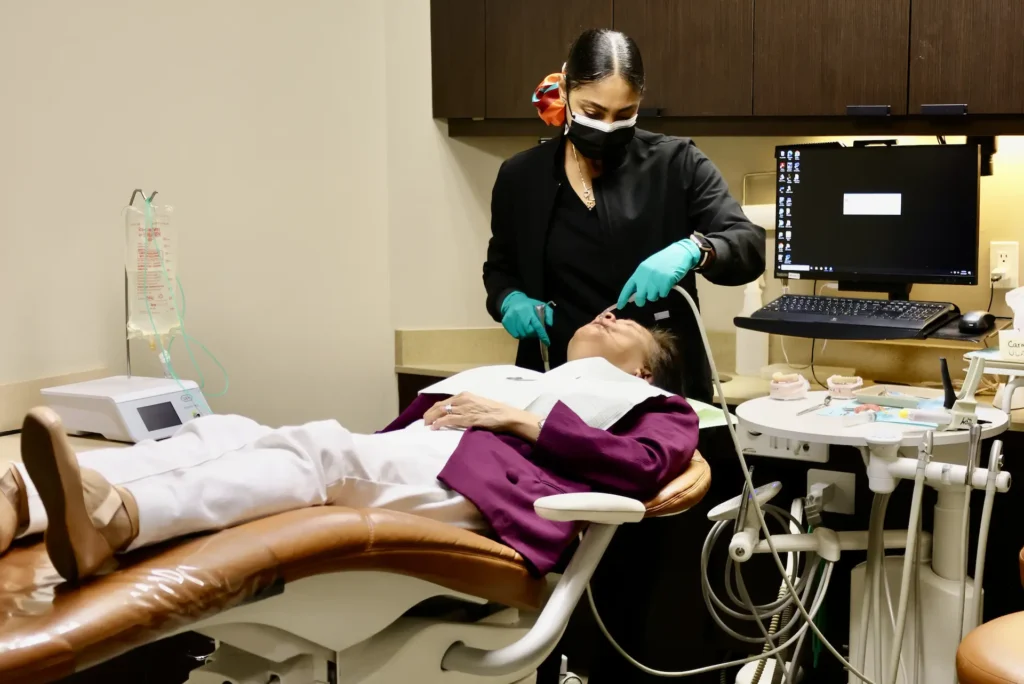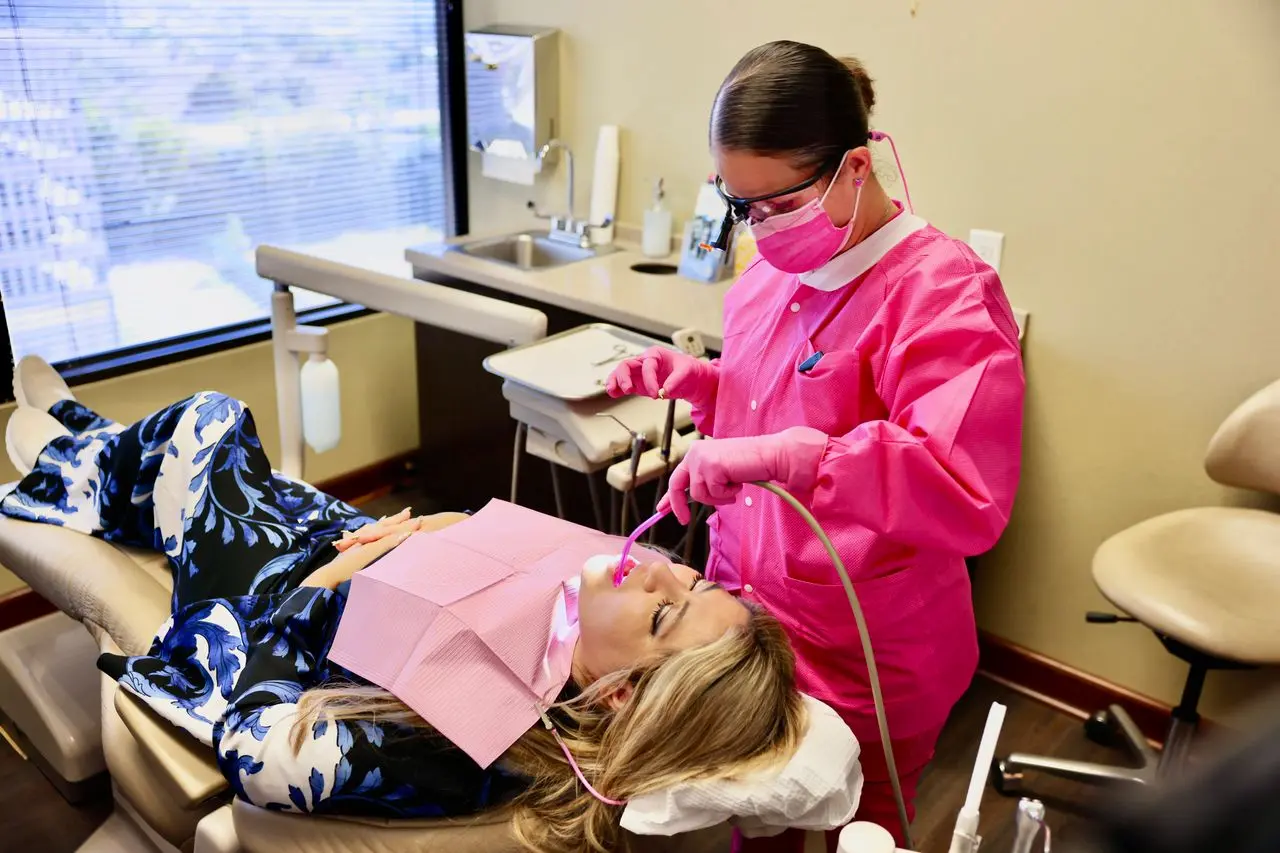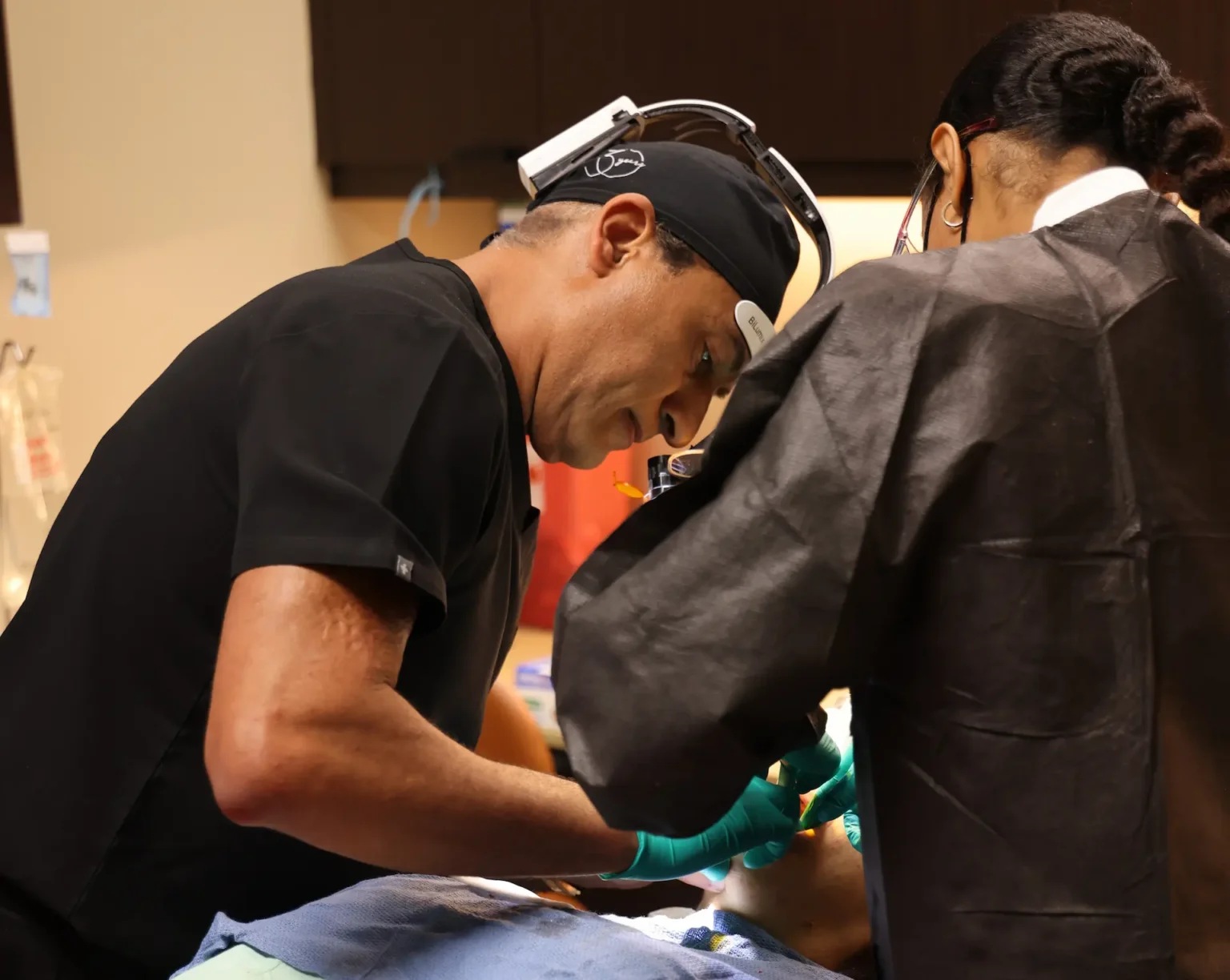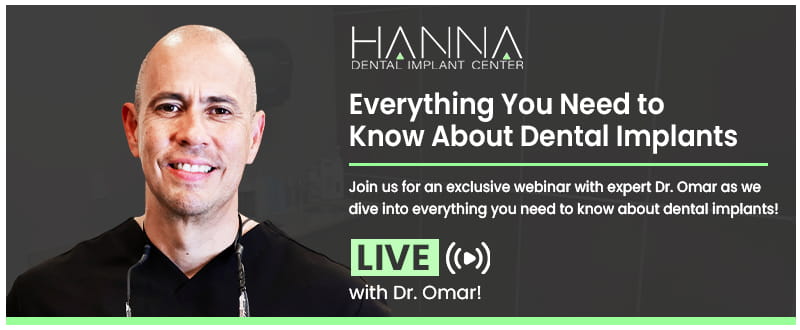Your oral health plays a big role in your overall well-being. When bacteria build up in the mouth, they can lead to infections, gum disease, and other complications. Over time, these issues may impact more than just your smile—they can contribute to inflammation and affect your overall health.
The good news is that with the right care and treatment, including dental implants when needed, you can restore both your oral health and confidence.
Key Takeaways
- ‘Bad teeth’ can make you sick. Bacteria from decay and infections can spread beyond your mouth.
- Your oral health affects your whole body. Poor dental health has been linked to heart disease, diabetes, and lung infections.
- Removing a rotten tooth can prevent bigger problems. Leaving it untreated can lead to jawbone damage and more infections.
- Dental implants are a great solution. They replace damaged teeth, stop infections, and improve overall health.
- Taking action now can protect your future. If you have dental problems, contact Hanna Dental Implant Center immediately!
How Bad Teeth Can Make You Sick
‘Bad teeth’ is often used to describe poor oral health, which can result from issues like plaque buildup, bacteria accumulation, and neglecting regular cleaning between the teeth and gums. As you can imagine, it can cause health problems if left untreated.
When bacteria in your mouth grow out of control, they don’t stay in one place. They can travel through your bloodstream, affecting different parts of your body. This can cause infections, inflammation, and long-term health risks.
Your mouth naturally contains bacteria, which is a normal part of oral flora. However, not all bacteria are beneficial. When you don’t clean your teeth and gums thoroughly, harmful bacteria feed on food particles, causing plaque to build up and potentially lead to oral health issues. Over time, this can lead to:
- Cavities – Holes in the teeth that can grow deeper, reaching the nerves.
- Gum Disease – Inflammation and bleeding gums that weaken the tissues holding the teeth.
- Tooth Infections – Bacteria invade the tooth, causing pain, swelling, and abscesses.
Taking care of your oral health is essential, especially if you’re dealing with damaged or infected teeth. Ignoring these issues can lead to further complications, so it’s important to consult with a dentist or specialist to explore the best options for restoring your smile and overall well-being.
One of the most serious issues is a tooth abscess. This is an infection deep inside a tooth. If left untreated, it can spread to your jaw, bloodstream, and even major organs. Poor oral health has also been linked to heart disease, diabetes complications, and a weakened immune system.
If your teeth are badly damaged, decayed, or missing, restoring your oral health is important.
Dental implants can replace unhealthy teeth with strong, natural-looking ones that function like real teeth. They help prevent infections, improve chewing, and support overall health.
In many cases, dental implants may be recommended as an effective solution. Unlike other restoration methods, implants fuse with the jawbone, providing a stable and long-lasting option for replacing damaged teeth. They:
- Eliminate infections by replacing decayed or broken teeth.
- Prevent further health problems by keeping bacteria from spreading.
- Strengthen your mouth and jaw, making eating and speaking easier.
Taking action now can save you from serious health risks. If you’re dealing with bad teeth, talk to an experienced dental implant specialist about your options.
How Poor Oral Health Affects Overall Health
Your oral health is closely linked to your overall well-being. When your teeth and gums are unhealthy, bacteria can spread and cause serious problems beyond your mouth. For instance, gum disease can affect the heart. When bacteria from infected gums enter the bloodstream, they can cause inflammation in the blood vessels.
If you have missing or infected teeth, dental implants can improve both your oral and overall health.
Dental Implants as a Solution to Poor Oral Health

Dental implants are permanent tooth replacements that look and function like natural teeth. They consist of three parts:
- A titanium or zirconia post that acts as a replacement for the tooth root.
- A connector (abutment) that links the post to the crown or restoration.
- A custom-made crown or restoration that looks just like a real tooth.
The good thing about dental implants is that they fuse with your jawbone, creating a strong and long-lasting foundation. They don’t slip, shift, or require adhesives.
Dental implants help to:
- Eliminate infection risks by replacing severely damaged teeth.
- Support healthy gums and bones to prevent further tooth loss.
- Help you chew properly so you can eat a balanced diet and stay healthy.
- Reduce strain on your heart and immune system, keeping bacteria from spreading to other parts of the body.
Dental implants offer more than just a beautiful smile. They are:
- Long-lasting – With proper care, implants can last many decades.
- Strong and stable – No slipping, shifting, or discomfort.
- Natural-looking – Designed to blend in perfectly with your real teeth.
- A permanent solution – No need for frequent replacements like bridges or dentures.
Maintain Good Oral Health with Hanna Dental Implant Center!
Taking care of your teeth is about more than just avoiding cavities. A healthy mouth helps protect your overall well-being. If you have bad teeth or missing teeth, getting the right care can prevent serious health problems. At Hanna Dental Implant Center, you’ll get expert care and personalized solutions to restore your oral health.
With us, you’ll receive:
- Comprehensive exams to check for infections, gum disease, and other oral health issues.
- Custom treatment plans designed just for you.
- Advanced dental implant solutions to replace missing or failing teeth.
No matter your dental needs, we offer a full range of services to help you regain your health and confidence. Every smile is different. That’s why we take the time to understand your needs and create a treatment plan tailored just for you. Whether you need a single tooth implant or a full-mouth restoration, you’ll get a plan that fits your health goals, budget, and lifestyle.
You don’t have to live with bad teeth or the health risks that come with them. Schedule a consultation with us now to get started!
Frequently Asked Questions
How do I know if my rotten tooth is making me sick?
If a rotten tooth is making you sick, you may notice:
- Persistent tooth pain or throbbing that doesn’t go away.
- Swelling in your face, jaw, or gums.
- A bad taste in your mouth or foul breath.
- Fever, chills, or feeling tired without another clear cause.
- Difficulty swallowing or breathing (in severe cases).
These signs may indicate a spreading infection. If you notice any of them, see a dental specialist immediately.
How sick can you get from bad teeth?
Bad teeth can cause mild to severe health problems. A tooth infection that spreads can lead to:
- Sinus infections, which cause headaches and congestion.
- Ludwig’s Angina, which is a serious swelling in the neck and throat.
- Sepsis is a life-threatening blood infection that can cause organ failure.
Ignoring dental infections can put your whole body at risk. The sooner you get treatment, the better.
Can a bad tooth make you unwell?
Yes, a bad tooth can make you unwell. The bacteria from a decayed or infected tooth can enter your bloodstream, causing inflammation and illness. You may experience fever, body aches, fatigue, and swelling. Some infections can even spread to the heart or brain if not treated in time.
What happens if a decayed tooth is not removed?
If a decayed tooth is not removed or treated, the infection can:
- Spread to surrounding teeth and gums, causing more decay.
- Reach the jawbone, leading to bone loss and pain.
- It causes an abscess, which can burst and spread bacteria.
- Trigger systemic infections, putting your health at serious risk.
If your tooth is badly decayed, a dental implant can replace it and restore your oral health. It’s best to act early before complications arise.



